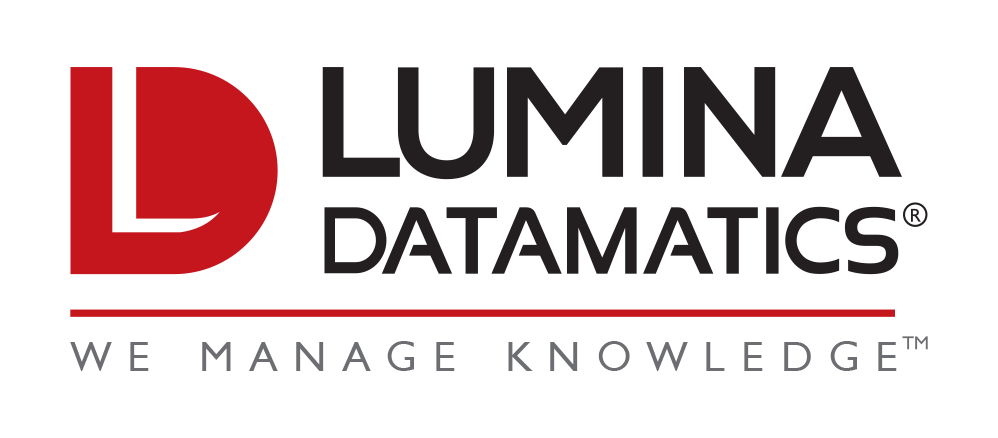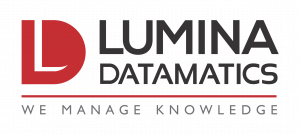Don’t Delay the Start
I’d had it on my to-do list for years. Literally years.
In 2005, I received my Bachelor’s degree from a traditional 4-year university. I then went on to start my career, always with the intention to go back. Someday.
I liked school a lot – in fact, I loved some parts of it—so I saw my bachelor’s degree and the start of my career as only the beginning. I always assumed I’d go back for more.
Then along came life. Those early years of my career left little or no time for anything else. I worked 8–12-hour days, 5–7 days a week, and somehow also managed to get married, buy a home, and start a family. Those early years when our kids were young were as chaotic and wonderful as I had expected them to be.
So, I put it off, telling myself, when work slows down. When the kids are older. When we settle into the new house. When my travel schedule isn’t so hectic.
There was always a very logical reason to put further education off. In my traditional way of thinking, I figured it had to be a Master’s degree or nothing if I wanted it to “count,” and that Master’s degree had to come from a prestigious (or at least well-known) learning institution (which translates to $$$$). So I kept saying to myself, someday.
Eventually, I realized that there will always be a reason to put it off, and that the time to pursue these endeavors wouldn’t materialize on its own. Do you have similar goals, but find yourself saying someday you’ll start achieving them? If so, I hope you’ll take time to read the following, which represents my (new and admittedly limited) experience with continuing education courses.
In writing this piece, I also conducted email interviews with a few fellow professionals who have had recent experience with upskilling and continuing education classes. I’m very thankful to these individuals for their contributions:
- Vinod Kumar Vinayagam, DGM – Technology at Lumina Datamatics
- Ed Parsons, Product Manager – Data Acquisitions at Social Explorer
- Abigail Perrine, Director of Business Development & Strategy at Lumina Datamatics
Get Motivated
Recently, I watched with awe as a coworker started to apply principles of online coursework to presentations and the day-to-day aspects of her job. She was in a similar personal position to myself – married, 3 young children, full-time, high-stress career. And yet she had managed to fold that elusive someday time for continued learning into her today.
I thought to myself (some manner of), well, she must have superhuman strength. I’ll still have to wait; I have a newborn who doesn’t sleep, for crying out loud! But one afternoon, as I was taking some time to reflect on my recent performance and career goals, I asked my colleague where she found the course that she had been talking about. It was as simple as that—what had appeared to be superhuman strength was actually just a well-thought out action plan that she didn’t delay starting. Out of the endless list of available educational pathways (obtaining a Master’s degree from a traditional or online institution, taking classes at a community college, obtaining a PMP or Six Sigma certificate, or the numerous online learning platforms), she had used (and suggested I consider) Coursera.
It turns out I wasn’t the only one who was inspired by a peer or colleague. In my recent correspondence with Vinod Kumar Vinayagam, he said, “In recent days, my friends and colleagues inspired me by posting their certifications on LinkedIn.” So when he found himself with enough time to devote to the coursework, he signed up.
Ed Parsons shared that his career development goals were his motivation. He began his ongoing learning in 2019, and continues taking courses to obtain additional certificates. Ed’s experience in online learning is unique and in depth, as he has experienced courses both as a learner and as a product manager in higher education.
In Abby Perrine’s case, she initially sought out a specific course to help with a particular work project she was struggling with. When she realized that her method of research on the subject was slowing her down, she signed up for a course that would provide her with a more robust understanding that would benefit not only herself personally, but also her employer. Though she’d considered other courses before, she’d never actually managed to complete one until recently. Of that recent experience, she says “I think [the difference] was timing and applicability. This time around, coursework I was interested in directly coincided with my professional goals. Because of that intersection, I held myself to a higher level of accountability.”
Everyone’s motivation for why they want to continue learning will be very personal, and based on what inspires them to take action. But taking that action, that first step forward—even if it’s a tiny step—is critical, and very worthwhile.
Choose Your Path
I wasn’t sure what I was looking for, only that I wanted something. So I shifted my mentality away from getting a degree that would “count” to focusing on skill-building and learning. I was looking to learn for my own benefit, so I needed to find something that would engage, interest, and teach me.
I browsed the course catalogue, and within less than an hour, I had decided on a course called Design Thinking for Innovation (led by Professor Jeanne M. Liedtka from the Darden School of Business at the University of Virginia), which essentially gave me an introduction into the skillset I couldn’t articulate that I was looking to grow.
Hold Yourself Accountable
What I needed most was accountability, and I could hold myself accountable by financially committing. So I signed up, paid for my first course, and started on the first week of coursework.
The other individuals I talked to seemed to take a more specified pathway into learning than I started with. In Vinod’s case, he had started by searching for specific courses about what he was hoping to learn. After taking a few, he found that LinkedIn Learning started offering him better suggestions based on his interests. (Score one for machine learning and algorithms!) Vinod’s goals were (and are) to remain current and up to date on technologies.
Ed’s approach was similar to Vinod’s, in that he was seeking information on a particular area of Python programming. His overall goals are mainly around career development, and learning Python has “proven to be quite useful professionally,” as he uses it most days in his current position.
Abby chose a series of courses that taught her different ways to view, sort, and run statistical tests on data she was able to collect. Her primary goal in this and all courses is to continue learning.
My key takeaway is that we all have different motivations and interests when it comes to continued education and upskilling. I’m sure most professionals at different times find themselves wishing they were more knowledgeable or capable in certain areas. I was excited to realize that I could obtain the education and skills I wanted without having to invest in a lengthy advanced degree program.
I also experienced a shift in how I think about success. I’m no longer learning to get the A, as I did throughout most of my traditional schooling. I’m learning for my own sake, for my own skill building, and to better myself. (Though incidentally, and maybe bragging a little bit for my mom who I will make read this, I have gotten As in my early course work!)
The self-paced courses offered via Coursera are critical in my own success. I have set aside 1-2 hours per day to focus on my coursework. Some days I find that time by waking up early, some days it’s in the evenings, and sometimes it’s over my lunch break, on a weekend, or on a day off from work. With my hectic schedule, every week is different, so self-paced coursework offers me the flexibility I need to succeed. There are also weeks (I’m in one right now!) where I get so buried by work or other commitments that I need to allow my plan to shift a bit. In those weeks, I need to be able to say to myself, I’ll set my coursework aside for now, and next week I will resume my originally planned schedule. I am choosing to participate in these programs, so I need to hold myself accountable to a reasonable timeframe, and prioritize my time to make it work.
Stay Motivated
As expected, in completing my first course, I learned useful information. But what I didn’t expect was the renewed energy this would bring to my work. I feel inspired and driven in ways I haven’t felt in years. I’m learning new principles and ideas that apply directly to my day-to-day job, which is rewarding and satisfying. I find myself lecturing informing my co-workers about the early principles I’m learning (you know, like the kid who takes an Intro Psych course and is suddenly a specialist who diagnoses all their friends and family members – okay, maybe that was me too…).
And it turns out, it’s not just me that felt so inspired by their previous coursework that they intend to do more. Vinod, Ed, and Abby all intend to continue taking courses – either using the same platform, or by exploring new ones. Abby’s recent coursework positively impacted her work, as expected, but also provided her with insights into how to consider and think through data in everyday life. She says, “whether that’s reading the news or something else, it’s staggering how many things you can use Excel’s statistical tools for.” She plans to continue future courses that will benefit her professional development, but will also explore shorter courses for fun, personal topics.
As for me… I’m extremely happy to say that I’ve now successfully completed 2 courses and have started a third, and have a lengthy list of topics I want to tackle next. I’ve found a way to improve my skills, bring more value to my work, and feel more fulfilled. It’s also a great way to battle that nasty imposter syndrome—you can validate and enhance your knowledge, giving you the confidence that you likely deserve to have already.
Share your Successes!
When you’ve finished a training module, program, or video, don’t be afraid to toot your own horn on social media! I always do, but not just for my own benefit. It’s true that these certificates I’m earning will look good on my résumé and my LinkedIn profile. But I post my certificates not merely as an act of vanity, or to boost my online résumé and digital presence. I was originally inspired by a colleague with similar personal and professional challenges as me who had turned her someday into today. (Okay, I’ll just say it – it was Abby Perrine, one of the interviewees quoted throughout this piece!) Vinod was similarly inspired by his colleagues, so perhaps if I share my achievements, I’ll help to inspire someone else in my circle.
If you are even slightly considering taking a course or further developing your skills, I highly recommend you take the leap. Out of the endless possible paths to learning available, there is one that will be right for you. And if you’ve taken that step toward continued learning, share your experiences loudly and proudly with anyone who will listen! Share your certificates and degrees on social media, talk about it with friends, make recommendations to your coworkers, bring it up with your family.
That way, we can all motivate and elevate each other.
Have an experience you’d like to share with the author? We want to hear from you! Email Lumina to share your thoughts, or visit our website to learn more about Lumina Datamatics.





0 Comments